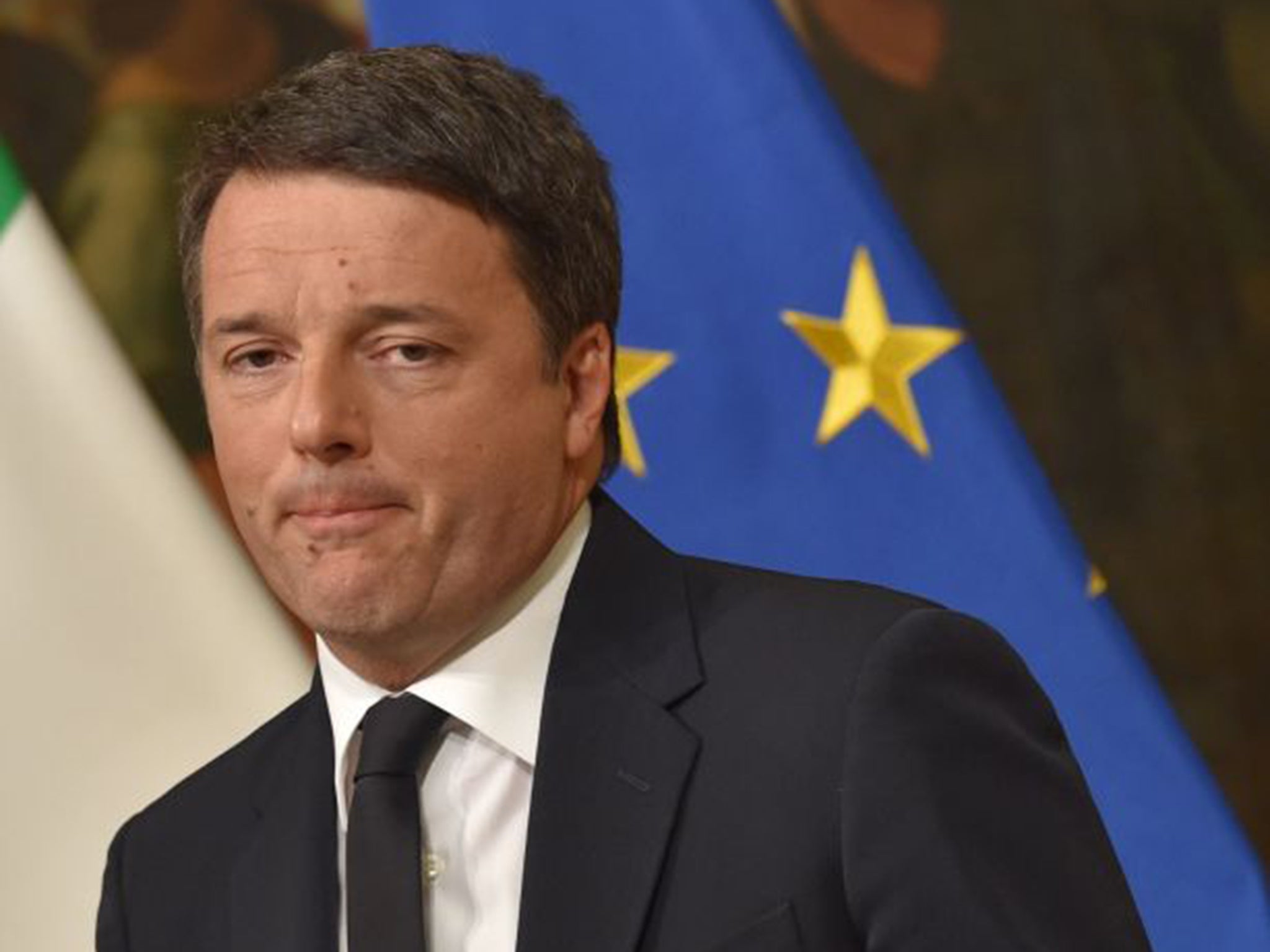Italian Prime Minister Matteo Renzi resigns after referendum loss
The 41-year-old's decision to quit after less than three years in office dealt a new blow to Western governments

Your support helps us to tell the story
From reproductive rights to climate change to Big Tech, The Independent is on the ground when the story is developing. Whether it's investigating the financials of Elon Musk's pro-Trump PAC or producing our latest documentary, 'The A Word', which shines a light on the American women fighting for reproductive rights, we know how important it is to parse out the facts from the messaging.
At such a critical moment in US history, we need reporters on the ground. Your donation allows us to keep sending journalists to speak to both sides of the story.
The Independent is trusted by Americans across the entire political spectrum. And unlike many other quality news outlets, we choose not to lock Americans out of our reporting and analysis with paywalls. We believe quality journalism should be available to everyone, paid for by those who can afford it.
Your support makes all the difference.Italian Prime Minister Matteo Renzi resigned on Wednesday after a bruising referendum loss at the weekend, with most parliamentary factions pushing for an early election in a few months' time.
The 41-year-old's decision to quit after less than three years in office dealt a new blow to Western governments still in shock from Britain's vote to leave the European Union and the election of outsider Donald Trump as president of the United States.
Mr Renzi tendered his resignation to President Sergio Mattarella, who said he would consult with the political parties to decide the next steps. He asked Mr Renzi to carry on in a caretaker capacity until a solution is found.
After the consultations, which will begin on Thursday at 1700 GMT and end on Saturday afternoon, Mattarella is widely expected to ask a member of Mr Renzi's cabinet, or a politician from his Democratic Party, to try to form a new government.
Elections are due in 2018 but many politicians are calling for them to be held earlier.
The political crisis sparked by the referendum coincides with a crisis in Italy's debt-laden banks, especially at its third-biggest lender Monte dei Paschi di Siena, which looks likely to require government intervention to survive.
Two sources told Reuters on Tuesday that Mr Renzi's administration was preparing to take a 2-billion-euro ($2.15-billion) controlling stake in the bank by purchasing junior bonds.
On Wednesday, a Treasury spokesman denied Italy was poised to ask for a loan from the European Stability Mechanism to support its banking sector.
Mr Renzi addressed his Democratic Party (PD) before meeting the president, saying the party would only participate in a government intended to last until 2018 if it was backed by all the main forces in parliament, a prospect which seems remote.
Otherwise early elections should be held as soon as possible, he said, after the Constitutional Court has ruled early next year on the legitimacy of the current electoral law.
"The PD is not afraid of going to early elections," he said.
Most opposition parties, including the anti-establishment 5-Star Movement and the right-wing Northern League, are clamouring for a quick vote.
Northern League leader Matteo Salvini said on Wednesday his party would "take to the streets" if a clear indication of the timing of the next election had not been given within a week.
Infrastructure Minister Graziano Delrio, a close ally of Mr Renzi, said an interim government should change the electoral law quickly so an election could be held "in the Spring".
Silvio Berlusconi's Forza Italia and a left-wing minority inside Mr Renzi's PD want a new administration to be formed with the backing of the current parliament, perhaps to last until 2018.
The PD has the largest number of parliamentarians, so it is unlikely any new government could be formed without Mr Renzi's backing.
Join our commenting forum
Join thought-provoking conversations, follow other Independent readers and see their replies
Comments